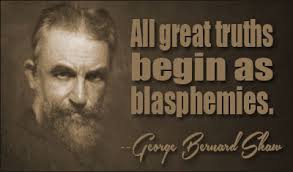Thinking of “Better Read Than Never” – my cleverly named series of reviews on books that are “yesterday’s news” (but not for me) – my tendency to untimely reading isn’t limited to novels. My mind being what it is, I decided to finish off the November 2014 edition of The Atlantic, an interest-packed number of a great old magazine. A James Parker piece on the “rock-star poet” Dylan Thomas, among many other things the inspiration for Robert Zimmerman’s stage name¹, came first, a welcome re-read. What I hadn’t noticed the first time through, or what at least didn’t make much of a dent in my memory bank, was a startlingly great quote from Hugh Kenner.
¹ So far, I have reserved judgement on Bob Dylan’s winning of the Nobel Prize for Literature, but I’m leaning towards The nostalgia and narcissism of the Boomer generation triumph again. Interesting choice. People paid attention, but I’m not sure it does anything for literature, which continues to have a declining coolness index unless I’m wrong (I hope I’m wrong).
Kenner – yup, news to me, too – is described in the Atlantic piece as a student and explainer of Marshall McLuhan, though I’ve come to discover that he was much more than that. Alongside McLuhan and the uber-educated imagination of Northrop Frye², the I hardly knew ye Kenner was in fact one of the great critical minds of 20th-century scholarship, a prodigious writer and one of the great Wise Guy Canadians. (True to form, I’m now bandwagon-jumping on to an e-book platform of his The Elsewhere Community (1998), an account of his travels to learn from and be among the greats of the arts and sciences.³)
² I was lucky enough to have a remarkable English teacher in high school, Pete Hill, who shoved The Educated Imagination by Northrop Frye at me. Even then, my rather lightly educated mind knew it was awesome. (Note to self: read more Frye.)
³ Also true to form, I will now find an obscure way to connect this literary life to basketball: Kenner was born in Peterborough, Ontario, where one of the older high schools is Kenner Collegiate, named after Hugh’s father, a teacher. (A school named after a teacher?!) At least one of my teams has played at Kenner, so there.
(But enough about me.) The knockout punch of the Dylan Thomas look-back came toward the end of the article, which argues that we should not look at the excesses, lifestyle and literary, of the Welsh poet but rather at the best of what he was and what he did. Author James Parker reminds us of the famed McLuhan aphorism: The medium is the message. Parker advises, therefore: don’t look so much at this or that Thomas poem, which may by now feel dated or immoderate or just plain meaningless; instead, consider what the man himself meant, and attempted. At this point, Parker quotes Kenner’s explanatory paraphrase of The Medium is the Message.


